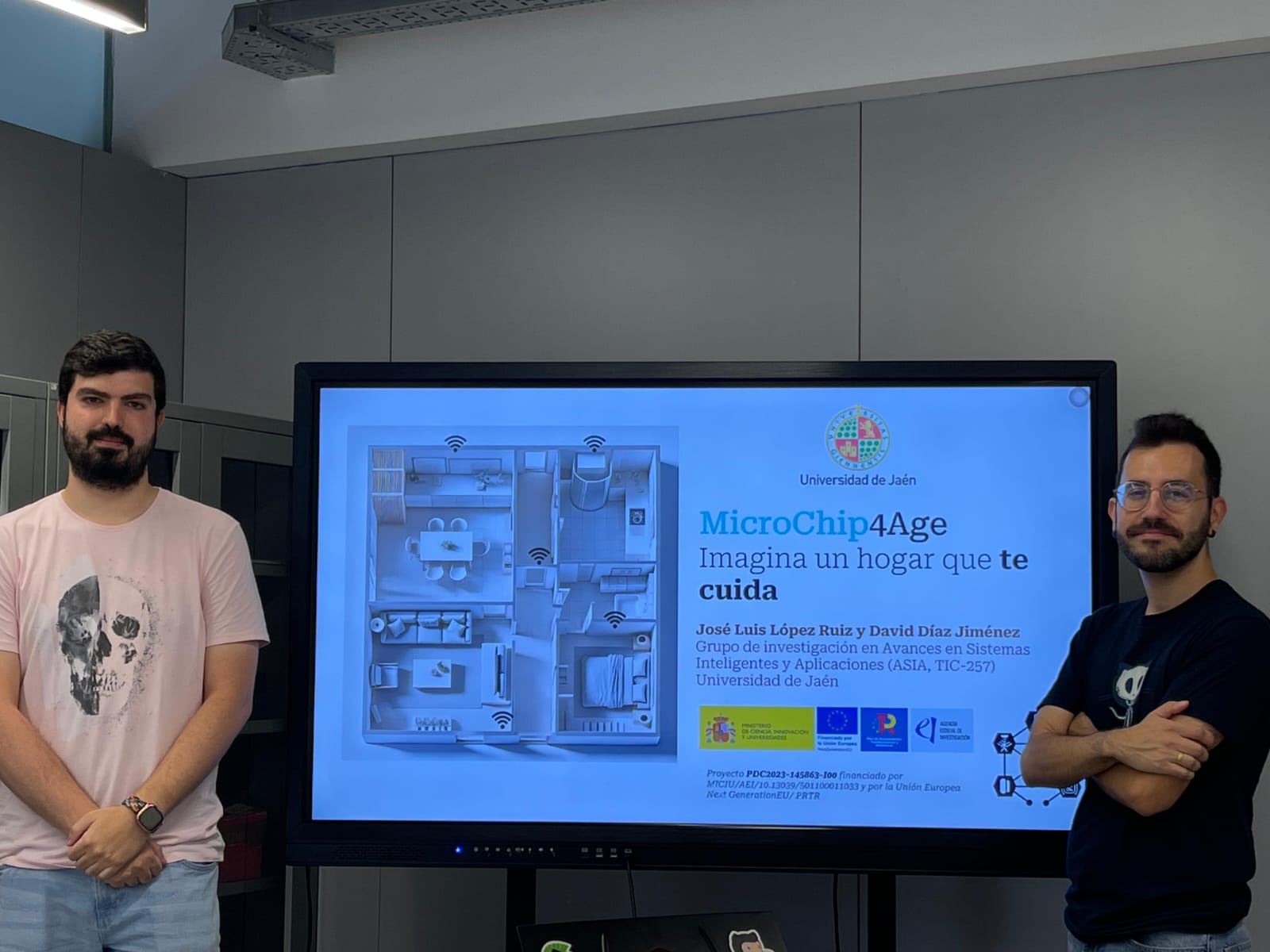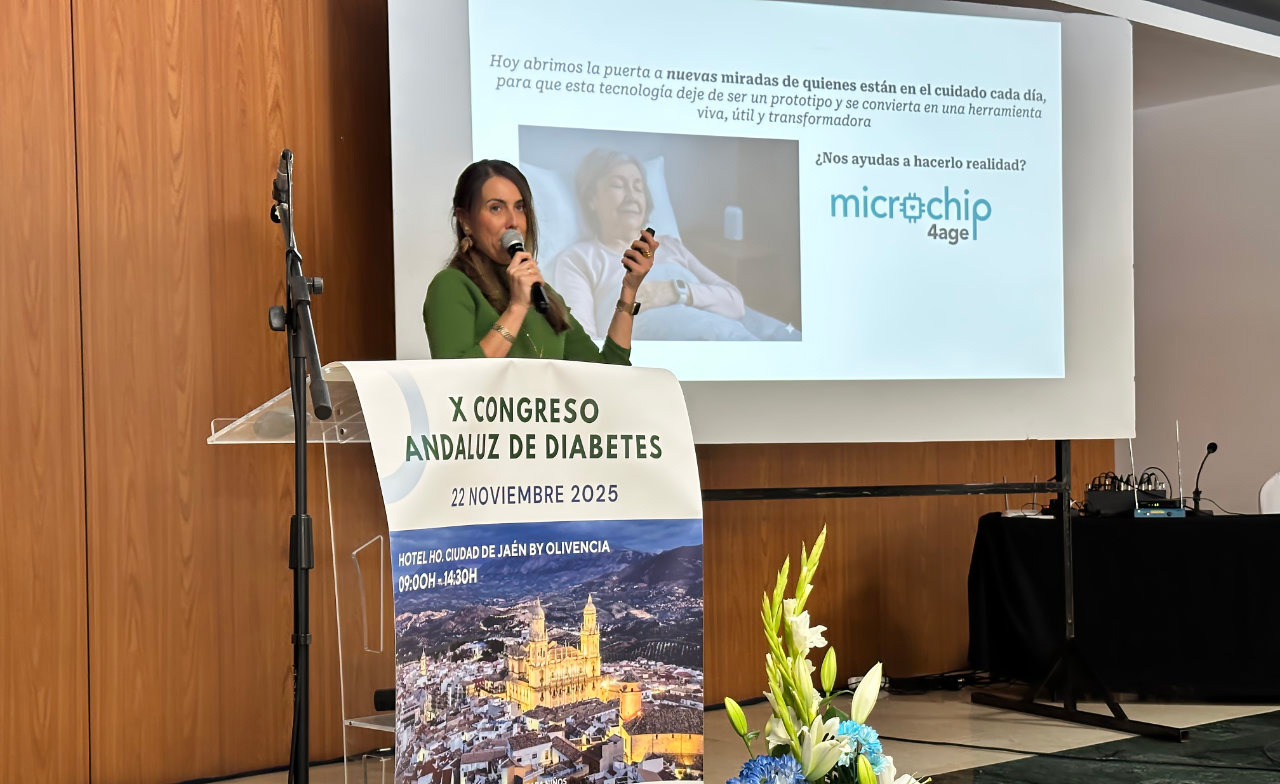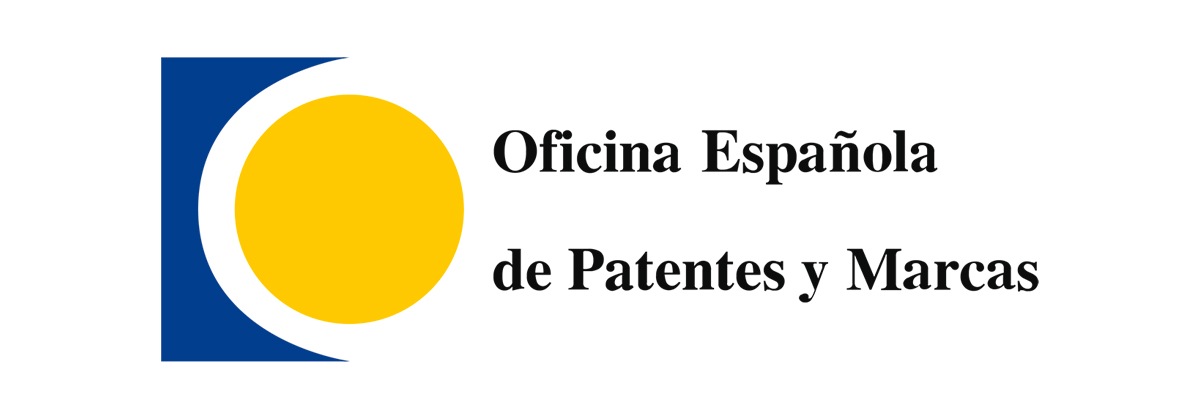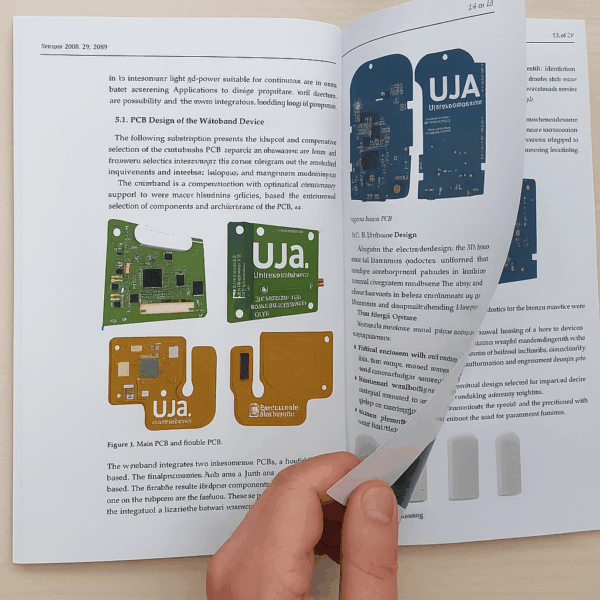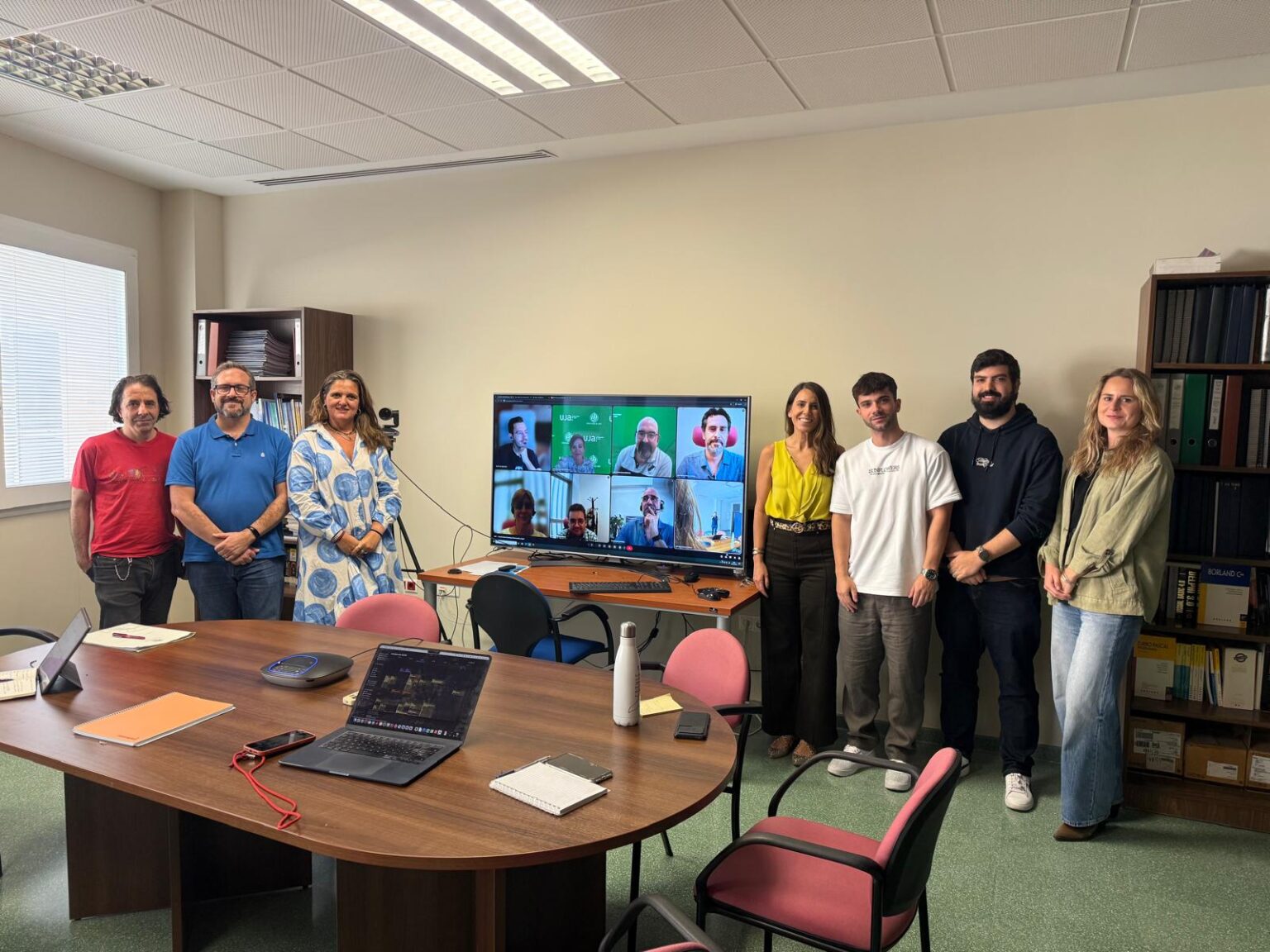The project team tests its BLE devices in the University of Valencia anechoic chamber and presents key developments to experts in digital health, IoT, and intelligent systems.
Valencia, July 15, 2025 – The MicroChip4Age project, led by our ASIA research group (Advances in Intelligent Systems and Applications) at the University of Jaén, continues progressing in its technological validation phase through a scientific stay at the University of Valencia (UV). As part of this visit, the research team is conducting experimental testing of one of the core components of its system: the Bluetooth Low Energy (BLE) antennas integrated into the project’s wearable and environmental devices.
Researchers Dr. José Luis López Ruiz and Dr. David Díaz Jiménez, members of the MicroChip4Age team, are carrying out the experiments in the anechoic chamber of the Radiofrequency and Antennas Laboratory at UV—one of the largest and most advanced in Spain. Directed by Professor Enrique Navarro Camba, this 5 × 5 × 8-meter facility provides optimal conditions for highly precise near-field measurements and transformations to far-field results, critical for testing the performance of BLE antennas in complex environments.
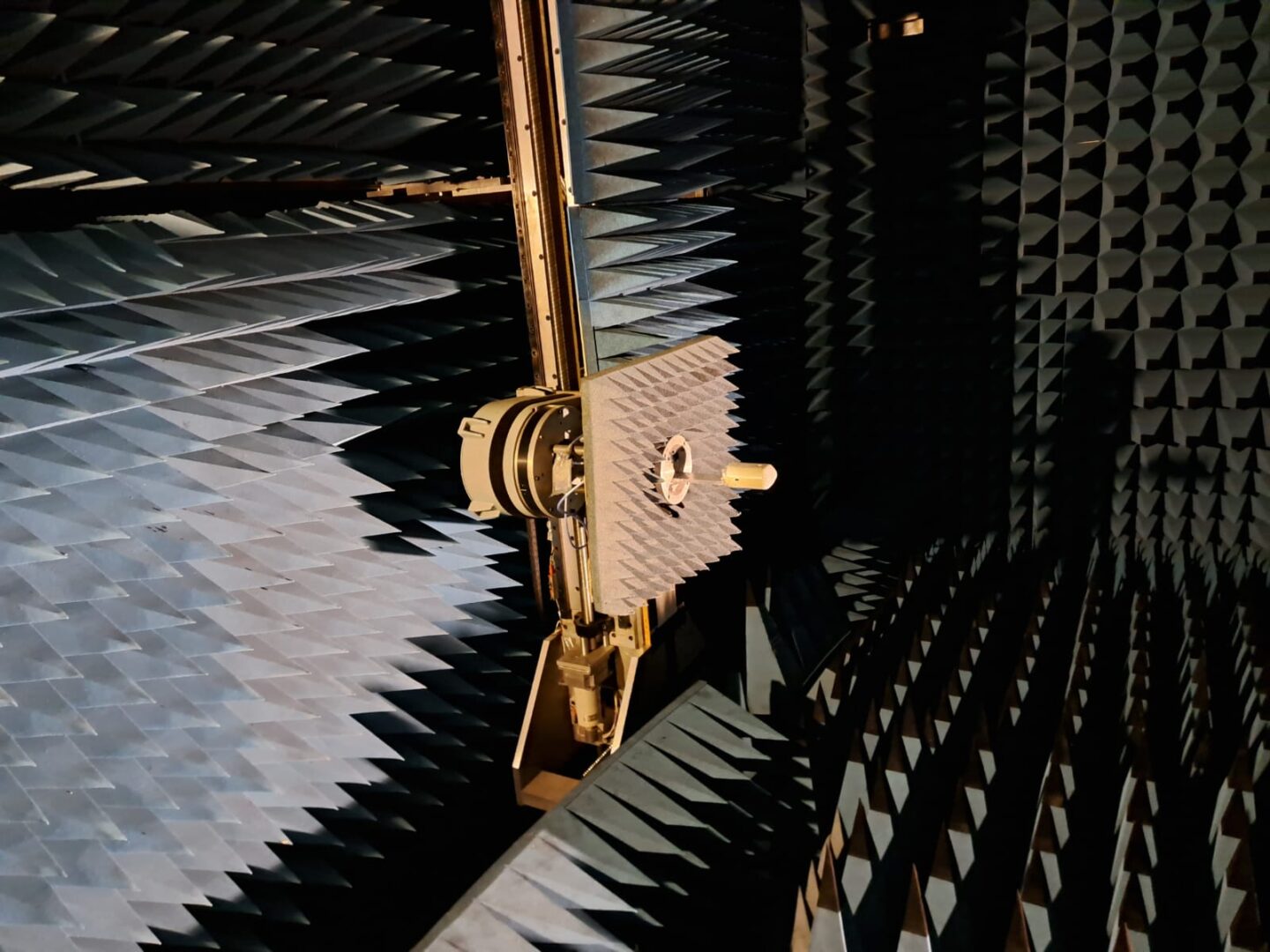
High-precision validation in controlled environments
The goal of this phase is to validate the electromagnetic performance and reliability of the BLE components, ensuring their integration with the wearable bracelet and the “pawn”-type beacon device. This experimental process is part of the project’s roadmap to reach Technology Readiness Level (TRL) 7, a key milestone to ensure the system’s readiness for real-world healthcare applications.
The stay is also supported by Dr. Joaquín Torres Sospedra, a leading international expert in indoor localization and currently a distinguished Marie Sklodowska-Curie fellow at UV. His extensive experience in smart positioning systems and navigation technologies has contributed to enriching the validation process and fostering new avenues for future collaboration.
MicroChip4Age: a home that protects without intruding
As part of the visit, the team held a scientific session at the School of Engineering (ETSE) at UV, where they presented the latest advances of the MicroChip4Age system. The session highlighted the system’s ethical and non-invasive approach, its personalized device design, and its relevance to person-centered care in aging and chronic disease contexts.
The presentation was well received by faculty members, particularly those working in digital health, IoT, and intelligent systems, sparking a valuable exchange on potential applications and collaborative opportunities beyond the scope of the current project.
With this initiative, MicroChip4Age reinforces its role as a pioneering technological solution for ethical, respectful, and non-invasive health monitoring—committed to improving quality of life through real-world validation and scientific excellence.

